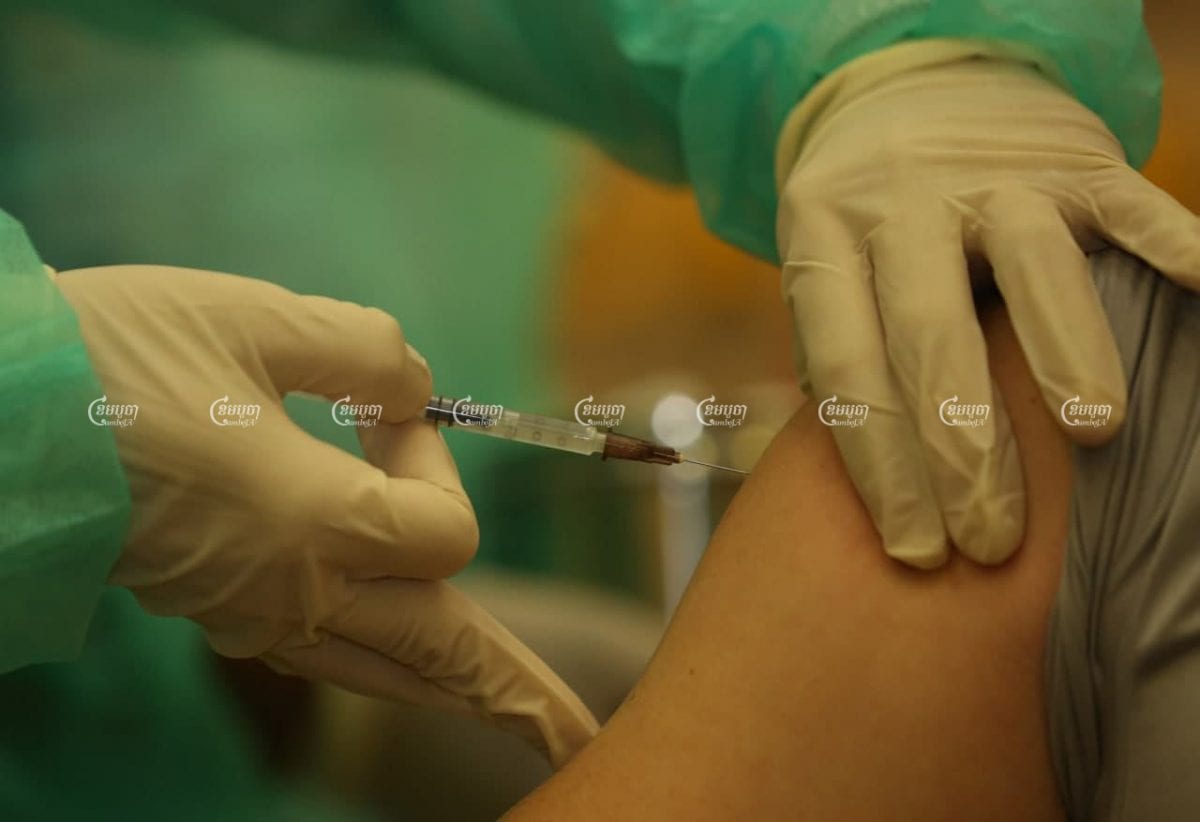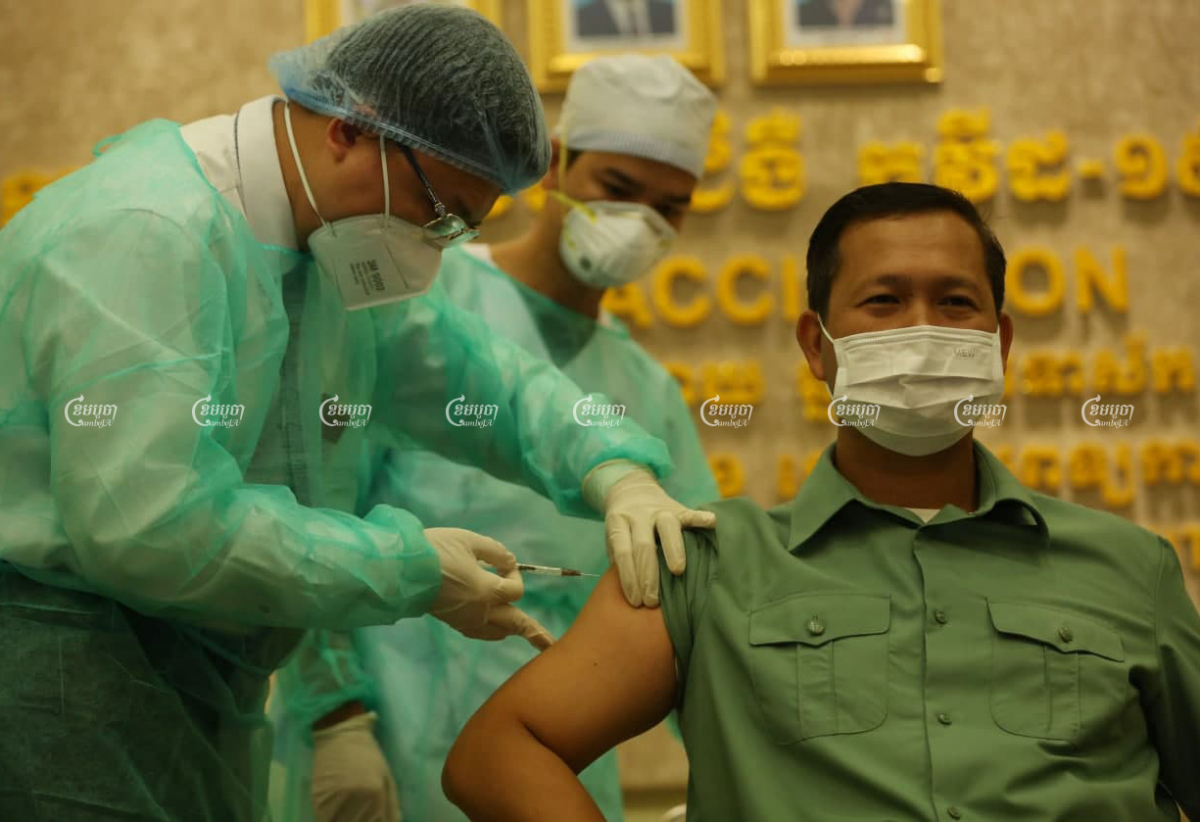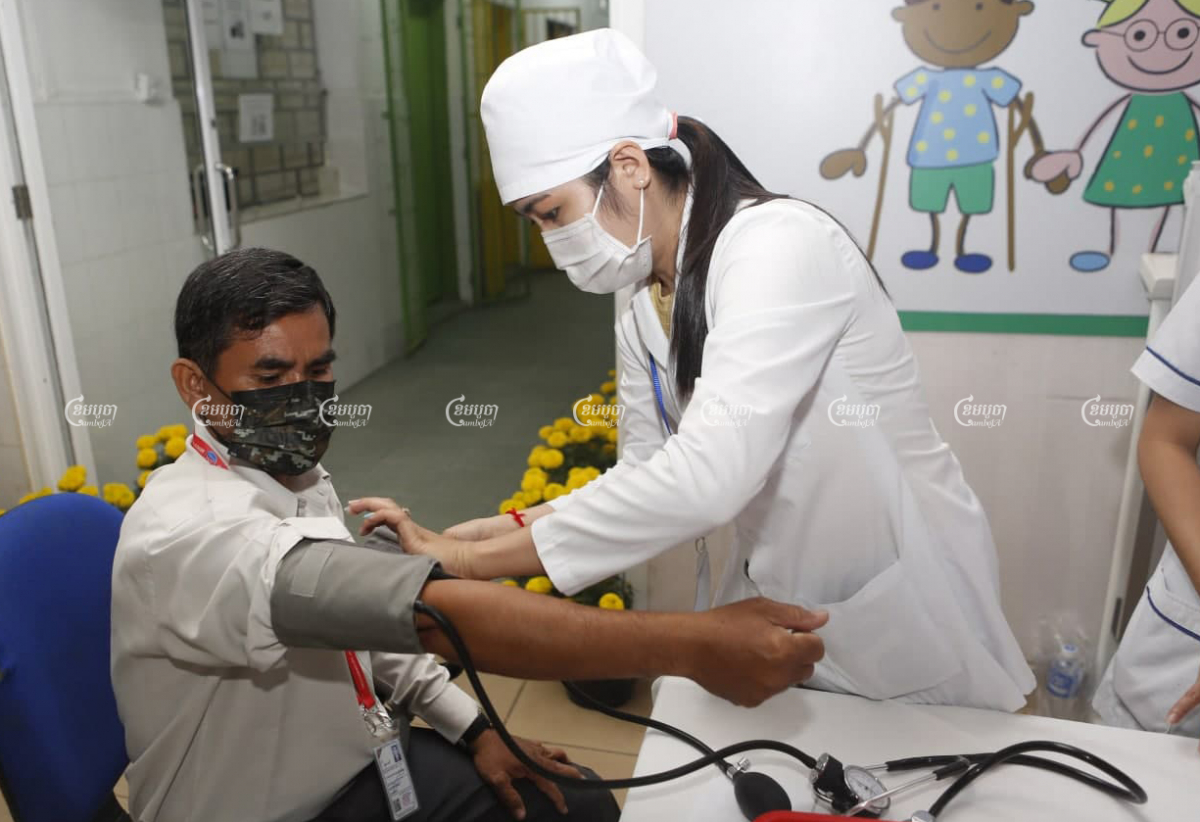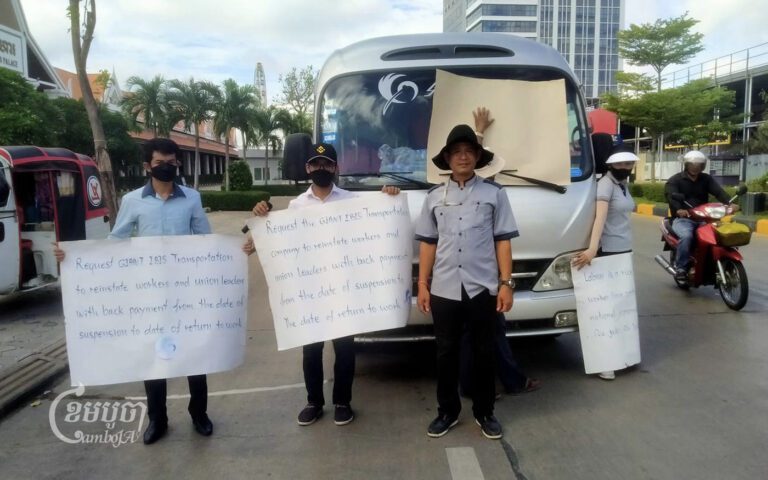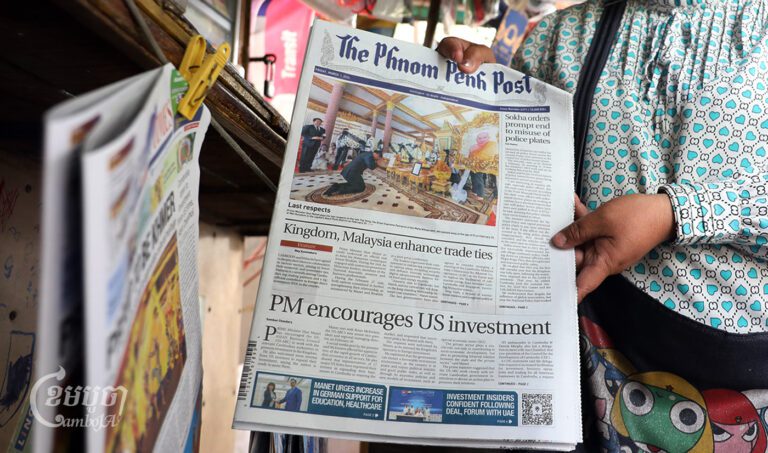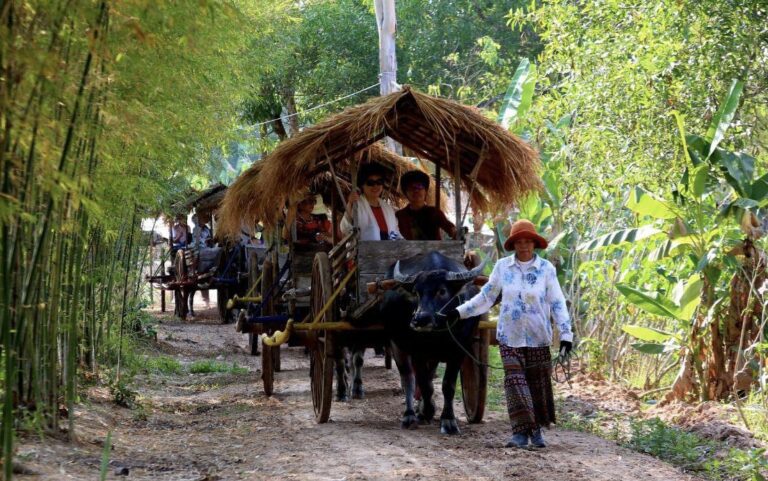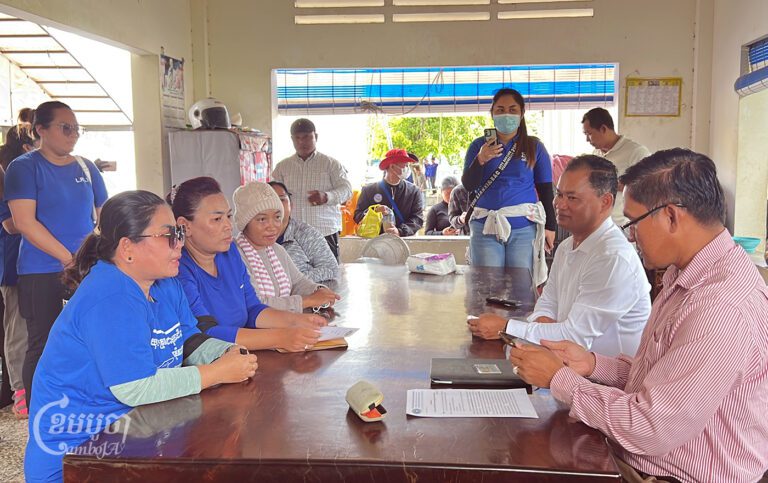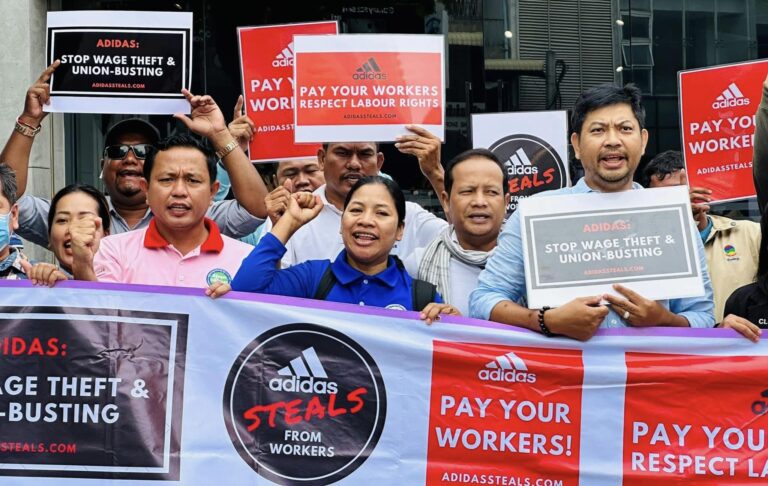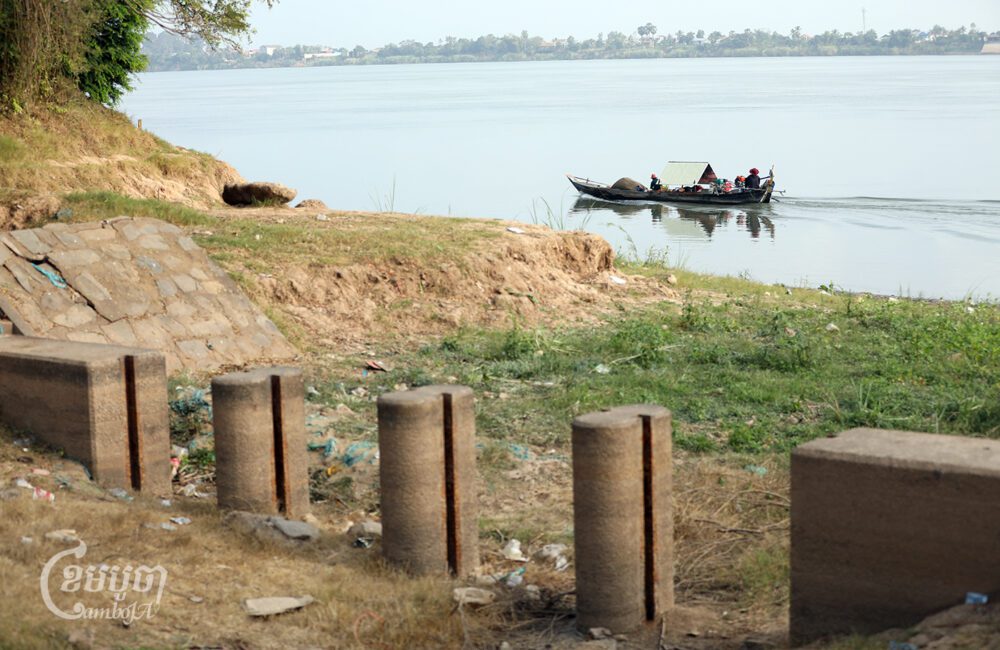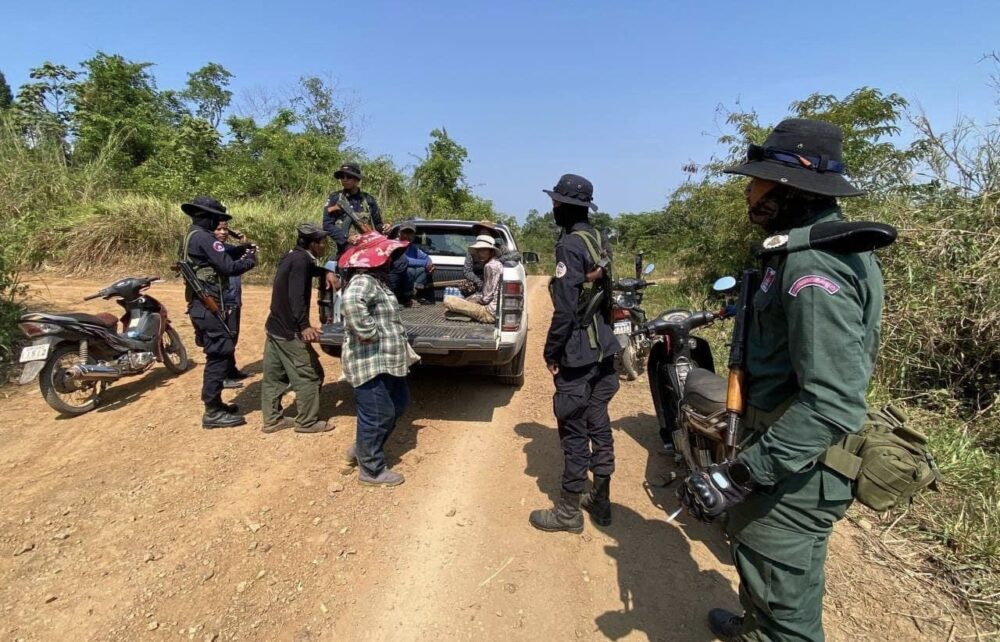The government’s COVID-19 vaccination drive began with senior dignitaries and provincial officials lining up to get inoculated, with 20 percent of people who went to get vaccinated turned away for underlying medical issues or for being not in the best health.
The government has started vaccinating key target groups, including politicians, medical workers and journalists, at four hospitals in Phnom Penh, after receiving the first batch of Chinese-made Sinopharm vaccines on Sunday. The government has undertaken a simultaneous, and shaky, public relations drive to convince Cambodians the vaccine is safe and effective.
Or Vandine, a Health Ministry spokesperson, said that 425 people came to get vaccinated on Wednesday but 86 were turned away or asked to come back later because of an existing health condition.
This included Hun Sen’s son, Hun Many, who has the flu and the prime minister’s son-in-law, Dy Vichea, who had an underlying medical condition, Vandine said. The senior Health Ministry officials herself got vaccinated and said she was feeling no side effects.
She said in some cases doctors ascertained that the underlying health condition was not serious and proceeded to vaccinate those people.
“Today, some dignitaries had high blood pressure and diabetes but their health situation was stable and not serious, so a group of doctors decided to inject for them,” Vandine said.
The government has said that several underlying health conditions, including liver disease, cancer, hypertension, cardiovascular disease, asthma and others, would disqualify someone from getting the Sinopharm vaccine.
Additionally, the Health Ministry said Chinese doctors had advised against inoculating people above the age of 60, leading to Prime Minister Hun Sen and other senior government officials backing out from getting the vaccine.
Vandine continued to tout the efficacy of the vaccine, which was given emergency use authorization two weeks ago. She said Chinese authorities had approved the use of the vaccine and more than 30 million Chinese nationals had already been vaccinated with Sinopharm.
Wednesday’s vaccination drive kicked off with Hun Manet, Commander of the Army and Hun Sen’s son, getting the first shot of Sinopharm, followed by his brother, Hun Manith, and brother-in-law and the late Sok An’s son, Sok Puthyvuth. The vaccination drive was televised and live-streamed on social media in an attempt to alleviate concerns over the vaccine.
Vandine also said that people should not drink alcohol in the lead up to getting the vaccine, in the period between the first and second shot, as well as for a small duration after receiving the second injection because it could hamper the efficacy of the vaccine.
 Hun Manet, Hun Sen’s son and Army Commander, gets the Sinopharm vaccine at Calmette Hospital on Wednesday, as the government started its vaccination drive. Pring Samrang
Hun Manet, Hun Sen’s son and Army Commander, gets the Sinopharm vaccine at Calmette Hospital on Wednesday, as the government started its vaccination drive. Pring Samrang A Cambodian journalist is given a health check before being administered the Sinopharm COVID-19 vaccine at a Phnom Penh hospital on Wednesday. Panha Chhorpoan
A Cambodian journalist is given a health check before being administered the Sinopharm COVID-19 vaccine at a Phnom Penh hospital on Wednesday. Panha Chhorpoan
Hun Manet, Hun Sen’s son, said it was important people get vaccinated to jointly protect against COVID-19.
“Then we can defend ourselves, we can defend our family and our national society,” said Manet.
He said doctors had asked him not to eat seafood or drink alcohol after taking the vaccine. Manet also thanked the Chinese government for delivering the vaccine to Cambodia.
Youk Sambath, a secretary of state at the Health Ministry, said she was feeling normal after being vaccinated. She was getting inoculated because she was working at the frontlines of the response to COVID-19.
“This vaccine is good and effective because it is 79 percent of effective,” said Sambath.
Rachel Albalak, country director for the U.S. CDC in Cambodia, did not comment about the effectiveness or risks associated with the Sinopharm vaccine.
“Like with all the new vaccines, we are still learning. We do not know much about the Sinopharm vaccine and therefore we are unable to comment,” Albalak said in an email.
Jaymond Jérome, a communication consultant at Institute Pasteur du Cambodge, said the laboratory was not associated with vaccination drive and directed questions to the Health Ministry.
CamboJA could not reach Li Ailan, head of the World Health Organization in Cambodia, for comment.
Many senior Cambodian People’s Party officials also got vaccinated, including Khuong Sreng, Kouch Chamroeun and Sok Lou, who are the governors of Phnom Penh, Preah Sihanouk and Kampong Thom, respectively. Justice Minister Koeut Rith and Environment Minister Say Samal were administered the vaccine as well.
Khuong Sreng said the start of the vaccination was a slap in the face of people who estimated that Cambodia would not receive a COVID-19 vaccine till the end of 2022.
“I am very proud because some people always say Cambodia is a poor country and they evaluated that Cambodia will receive the vaccine at the end of 2022. But, now Cambodia has received vaccine the beginning of 2021,” Governor Sreng said.
Justice Minister Koeut Rith said getting vaccinated reduced the stress he felt about carrying the virus and infecting his family and people he would meet.
Preah Sihanouk Governor Kouch Chamroeun wanted to tell the public, especially those listed as high-risk groups, that he felt fine after being vaccinated and that everyone should get inoculated.
“I am unable to verify to the public who are worried that I and other governors here are in a normal condition after being vaccinated,” he said.
A 40-year-old Phnom Penh resident, who wanted to be identified as Sung, said he was hesitant to take the vaccine because of all the restrictions for people with underlying conditions.
“There are a lot of conditions, like diabetic, angioedema, allergies, in our country and most people have some disease,” he said.
A 2017 study published in BMJ journal found that there was a significant delay in diagnosing people with health conditions, such as diabetes or hypertension, and that there was little expertise in the Cambodian healthcare system to help patients cope with chronic conditions.


